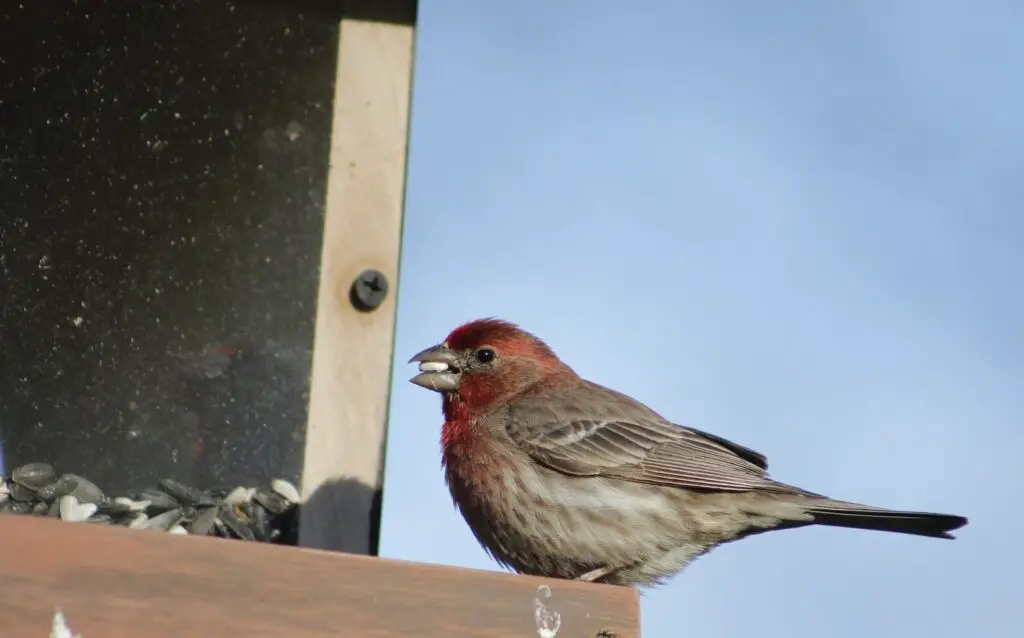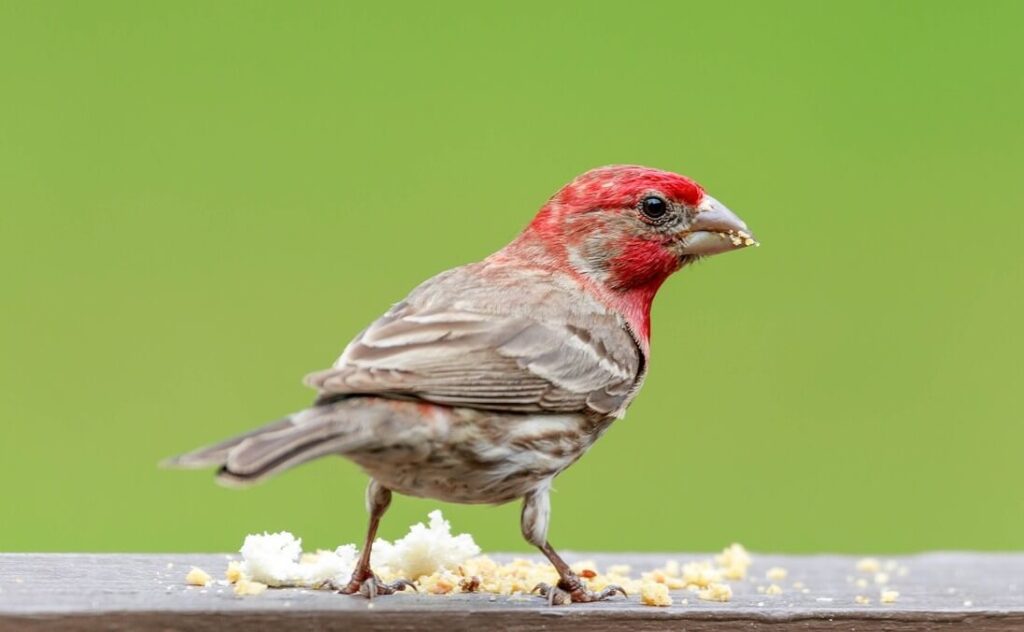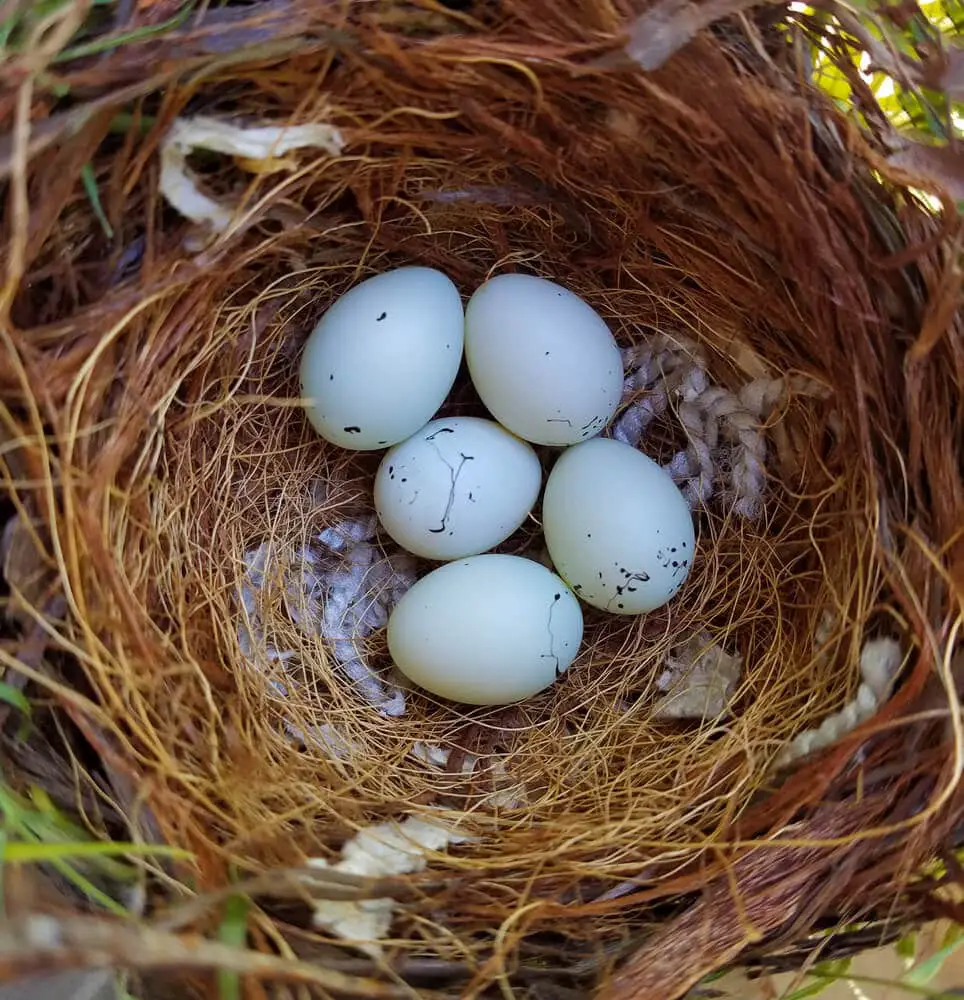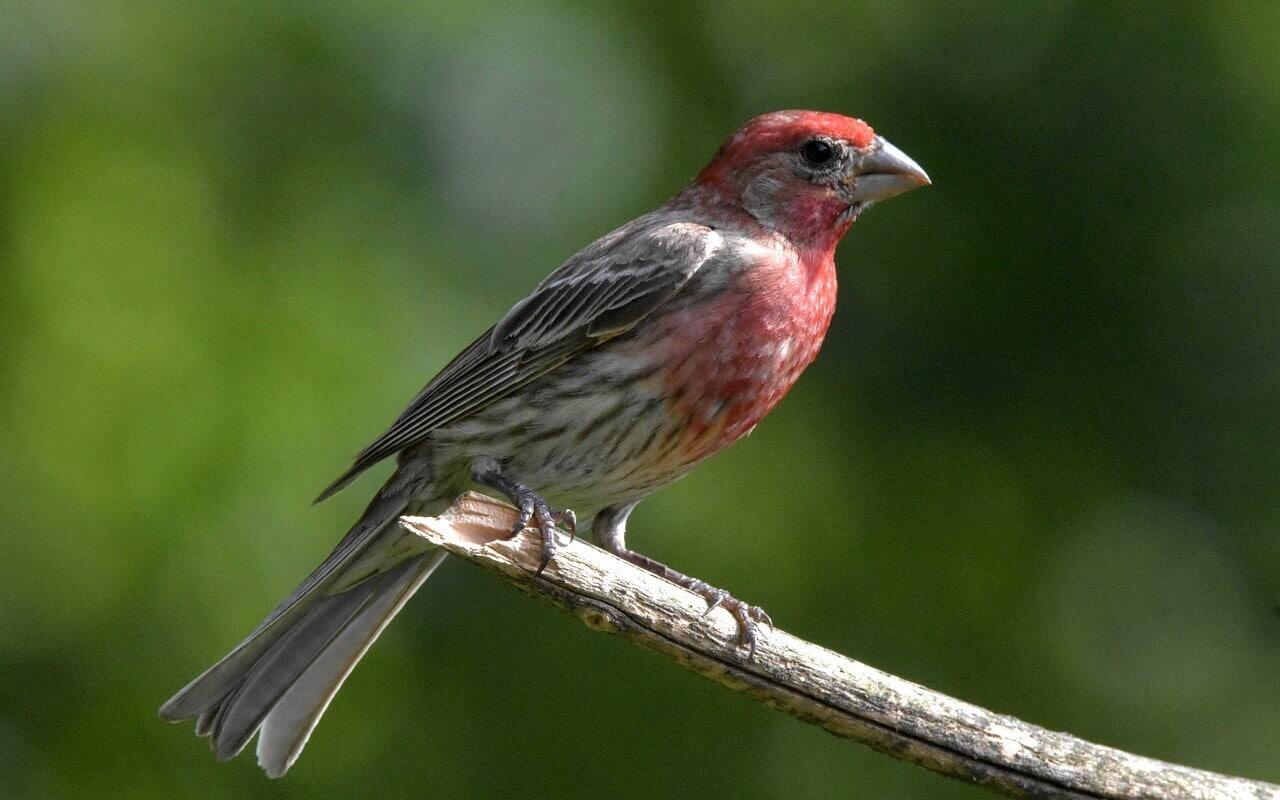House finches are adored by bird watchers everywhere. With fascinating mating and nesting habits, you may find yourself questioning why a house finch has abandoned its nest.
There are many reasons a house finch may decide to abandon its nest, including inexperience in parenting, stress, problems with their clutch, illness, and more. Unfortunately, not all finches are great parents, and many young first-time parents find that they have bitten off more than they can chew and abandon their nest.
The rest of this article will explain exactly why house finches may abandon their nests, and what you can do if you find that babies have been abandoned.
Nesting Habits of House Finches

House Finches follow a breeding season that starts in March and will continue into August, as long as their broods have been successful.
When preparing a nest, many find that male House Finches will gather grass, leaves, and twigs for nesting material while female House Finches will build the nest.
The nests of House Finches can be found in many different places, most of the time located close to buildings, such as hanging plants, wreaths, birdhouses, and even woodpecker holes. They will usually be found about five to ten feet above the ground, and once eggs are laid, will contain up to six eggs, bluish in color and speckled.
Once the eggs are laid, they will incubate for a period of about 12 to 14 days before hatching. Then, the young House Finches will stay in their nest for about 11 to 19 days before leaving the nest.
Also Read: Are House Finches Aggressive?
Possible Reasons Why A House Finch Would Abandon Its Nest
Although house finches are known for sometimes raising two or more broods a season, some will abandon their nest, leaving unhatched eggs or even their hatched babies abandoned. Here are some of the reasons why:
#1. Stress
There are many reasons why a House Finch can be stressed out enough to abandon its nest. If they have built their nest in an area that includes a rival for territory, pets bothering them, or even humans constantly messing with them, a House Finch may abandon their nest, finding a new place to raise their young.
If you find that there is a House Finch nest on your property, you should make sure that you cause the least amount of stress possible. You can do this by leaving them alone as they nest, trying not to bother them or check their nest too often.
#2. Illness
Finches are known for hiding illnesses well, but if a House Finch is sick, they may find that they cannot properly care for their young, and they may choose to instead abandon them.
#3. Inexperienced Parents
If a nest has been abandoned, there is a large chance it was done by an inexperienced parent. First-time House Finch parents sometimes lack the skills many Finches have for parenting and have lacked the time needed to develop them.
Many times first-time parents will panic when their eggs hatch, and either abandon their nest or toss their young.
#4. Problems with the Clutch
Although rare, sometimes problems arise with eggs or the hatched chicks. Trichomoniasis is one of the most common issues, caused by a protozoal infection that is passed from the parents to their babies. Although this infection is harmless to the parents, it can quickly lead to the babies dying.
If there are problems with the clutch, a House Finch will likely abandon the nest.
#5. They have only gone to gather food

Sometimes we think that a nest has been abandoned when it hasn’t been. Both parents and their babies must eat, and House Finches will sometimes leave their nests to get food.
When the incubation period starts, parents can leave their nests for up to around 30 minutes. Before the incubation period, House Finches don’t need to spend much time in their nest at all, and will frequently be gone for longer periods of time.
Since many House Finches won’t start incubating until all eggs are laid, which can take days, they may spend quite some time away from their nests until they are ready to start incubating. If you think that a nest has been abandoned, keep an eye on it, but be sure not to harass them.
#6. The Parents Were Killed
Unfortunately, many birds are killed when they are away from their nests. This can happen in many different ways for many different reasons, such as coming into contact with a predator such as foxes, raccoons, cats, and hawks, to flying into windows, to even being hit by a car.
If one parent is killed, many times the other will try to take over all the duties of the nest. That being said, many male House Finches are not capable of properly incubating eggs. Additionally, if the male is killed, the female House Finch may decide that they do not have the ability to gather food and incubate the babies, and will abandon the nest.
#7. The Nest Has Become Infested by Insects
Nests can sometimes become infested with mites, ants, or even flies, which will lead to unbearable conditions for the parents as they incubate their eggs. Additionally, a House Finch may decide that the insects may lead to a reduced chance of their babies surviving after they hatch. This could lead to them deciding that the nest is not worth the time and energy.
How Do You Know if a House Finch Nest Has Been Abandoned?
If you have suspicions that a nest has been abandoned, you should watch it for about an hour to see if the parents make an appearance to care for their babies. This should be done at a distance, considering many House Finches won’t attend to the chicks if there are humans close.
If you can’t keep watch for an hour and the nest is in a crevasse, you can put a small twig in the entrance. If it is moved when you check back, the House Finch parents have likely been attending to their young.
Do House Finches Leave Their Eggs Unattended?

House Finches may abandon their unhatched eggs in their nest if they are disturbed or harassed, or there are too many human disturbances.
Their eggs can be left unattended for up to two weeks before incubation. During this time, many House Finches will leave their eggs unattended for longer periods of time during the day.
How Long Can House Finches Leave Their Nests Unattended?
The length of time that a House Finch will leave their nests unattended depends on how far into the nesting period they are. Female House Finches will usually lay one egg every day about five to seven days after breeding. Some find that finches will not begin to sit on their eggs until after all eggs are laid.
This is a strategy many birds use in order to ensure that their eggs will hatch close together. It’s harder for the parents to take care of their babies when they are developing at different rates, so making sure that they are hatching close together is extremely important.
House Finches can leave their nests unattended for about 11 to 19 days.
Do Finches Use the Same Nest Twice?
House Finches often use the same nest multiple times. If someone moves their nest, the parents will likely abandon it.
What Can I Do With The House Finch Babies in the Abandoned Nest?
The first step you should take when finding an abandoned nest is to ensure that the babies are actually abandoned, as stated above.
If the babies are actually abandoned, your intervention may be needed. Most recommend that you call a wildlife rehabilitation center whenever you find an abandoned nest.
If you stumble upon an abandoned nest and the babies look as if they are sick or wounded, you should call your state wildlife agency, rehabber, or vet immediately. If they are all closed, you should take the babies into a warm, safe location, keeping them in a closed, safe box.
The box should have a heating pad underneath to keep them warm and should have several holes so that the babies can breathe.
According to Melanie Furr, the education director at the Atlanta Audubon Society, no matter what, you should never feed the babies yourself. Although people want to help the babies and have good intentions, many baby birds come to rehab facilities with food stuck in their lungs due to improper feeding. Feeding often does more harm to the babies than good.
Final Thoughts
There are many reasons why a House Finch may abandon their nest. Although some of them are unintentional, many of the reasons can be traced back to stress and inexperience.
If you happen to see that a House Finch has abandoned their nest, you should take care to ensure that the parents have actually abandoned it, since messing with their nest when they have only gone to gather food can lead to the babies actually being abandoned.
If a nest has been abandoned, call your local wildlife rehabilitation center right away.
Read Next: A Black Bird with Yellow Beak? (Top 11 Examples & Pictures!)
References:
https://www.audubon.org/news/when-you-should-and-should-not-rescue-baby-birds


